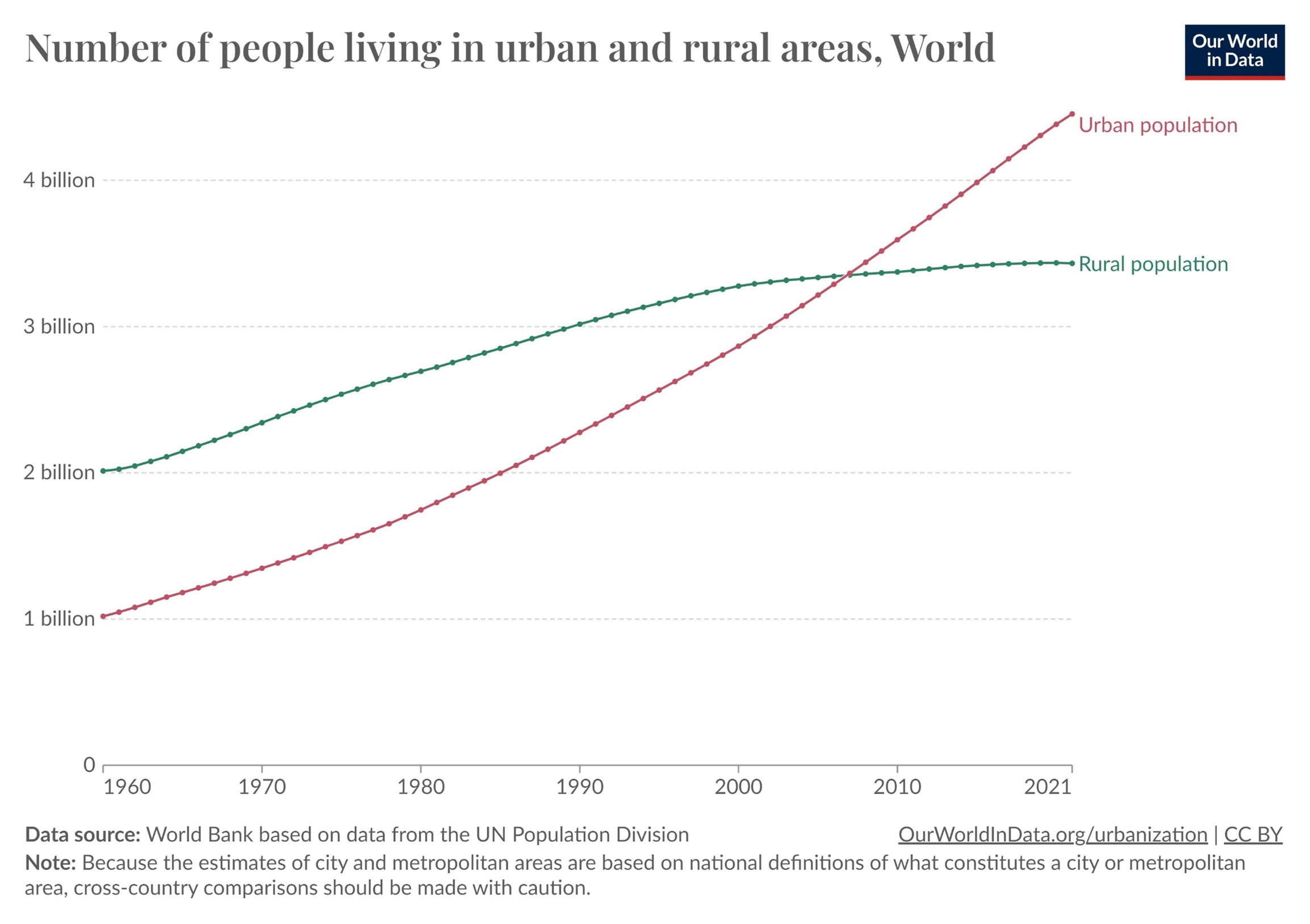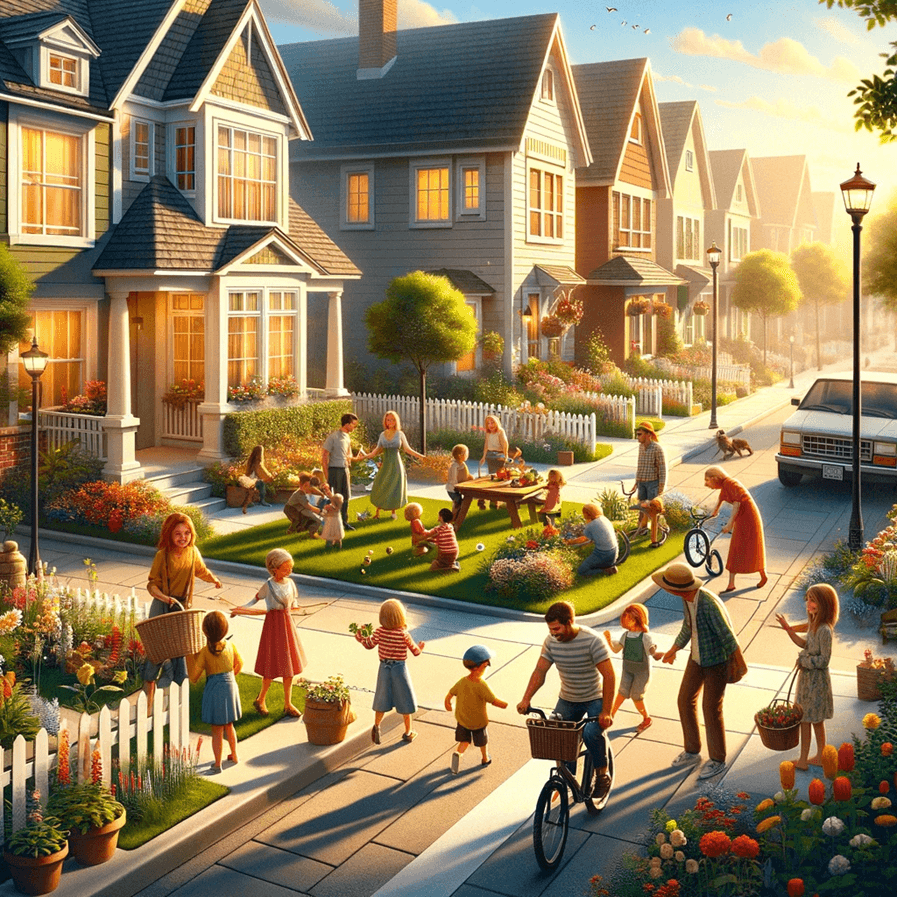Ask yourself: does it feel like our society is broken?
Well, let’s just pause for a moment.
Take a look around.
You can see, quite clearly, that a lot of us no longer trust our leaders. No longer trust our laws. No longer trust our system:
- Being pessimistic has become fashionable, hasn’t it? It’s now the dominant mood of our day.
- The Germans have a name for this kind of thing. They call it zeitgeist — the spirit of the times.
So, if our society is broken, here’s the next logical question: when, exactly, did it break?
- Well, I have a possible answer for you.
- Perhaps the turning point for us happened in 2007.
- Perhaps this was the year when our social bonds started to crack, fracture, and crumble.
Now, if you go back and look at the news headlines for 2007, here’s what you will see:
- Steve Jobs, the CEO of Apple [NASDAQ:AAPL], announcing the release of the very first iPhone. The product had reportedly cost over $150 million to develop, and it had a large responsive touchscreen, controllable by finger gestures. This was a very expensive gamble for Jobs. Was there a consumer appetite for this product? Would it actually succeed? Well, Steve Ballmer, the CEO of Microsoft [NASDAQ:MSFT], didn’t think so. In fact, he publicly laughed at the iPhone. He said no one would ever pay $500 for a device that didn’t even have a keyboard.
- Meanwhile, a young senator called Barack Obama was running for the US presidency. He had an exotic background, with a black father from Kenya and a white mother from Kansas. He had spent his childhood in both Hawaii and Indonesia. This created both intrigue and controversy. Was the White House ready for a leader as different as Obama was? Was he too liberal? Was he too radical?
- Finally, NASA launched its Phoenix Mars Lander from Cape Canaveral in Florida. The cost of this mission was $420 million. The spacecraft’s journey to the Red Planet would take nine months. This was a very ambitious experiment. The goal was to probe the soil of Mars. Did this planet ever support life in the past? Could it support life in the future? And more importantly, might it be feasible for humans to settle there one day?
Yes, these were the fascinating headlines in 2007:
- You could argue that these events were important in terms of consumerism, politics, and technology. They had a ripple effect on our society. Shaping our history.
- But here’s the thing. None of these events were quite as important as the milestone that I’m about to show you. In fact, I’m willing to bet that this emerging trend was much more powerful than anything else that happened in 2007.
A quantum shift for humanity?

Source: Our World in Data
Yes, take a close look at this graph. And you’ll start to see why 2007 was such a momentous year:
- For the first time ever, the urban population of the world began to overtake the rural population. In other words, a majority of people were now choosing to live in cities instead of towns and villages.
- The reasons behind this are obvious. People are drawn to cities because they want to chase bigger opportunities in education and employment. They want to enjoy cosmopolitan convenience and social diversity.
This trend is hugely consequential for all of us. Here’s why:
- For most of the 5,000-year recorded history of mankind, citizens were usually bound to small communities. They seldom moved. Their generational roots ran deep. Their heritage was set in stone.
- They were ruled directly by town mayors and village headmen. These were leaders that they grew up with. Leaders that they saw every day. Leaders that they knew. So, naturally enough, trust was implicit. Deeply woven into the fabric of their daily lives.
But now, in the 21st century, all this has changed dramatically:
- Urbanisation has accelerated. People have gotten into the habit of moving around a lot. Changing jobs. Changing addresses. Changing identities. Their roots have become shallower and shallower.
- Naturally enough, political power has shifted to capital cities, consolidating. Professional bureaucrats now run the show. As a result, the relationship between the government and the citizenry have started to grow cold. Distant. Impersonal.
In response to urbanisation, we’ve experienced a sharp rise in conspiracy theories:
- You are already familiar with this. The perception is that within our government, there’s a secret elite. A sinister cabal. A deep state. And they are working hard, around-the-clock, to harm all of us.
- Of course, such strong emotions aren’t surprising. More than ever, people are feeling alienated. Disconnected. Marginalised. So they feel the need to fight back — even if, most of the time, their resistance might go no further than whispers.
Nonetheless, it’s important to put all of this into context:
- Have you ever noticed how most shadowy conspiracies usually happen only on the national or international stage? Have you ever noticed how they almost never happen on the local level? Never in our local communities?
- Well, let me give you an example of this. Let’s say that a man is standing on a ladder one day, pruning a large bush in his garden. When he tries to climb down from his ladder, it suddenly gets wobbly, and he slips off. He falls and injures his arm. Ouch.
- Now, the man’s family will look at this event, sigh, and call it an accident. But none of them will call it a conspiracy, will they? Surely, they don’t have any reason to think that this is a plot by the ‘neighbourhood deep state’? A plot to sabotage the ladder and harm an innocent man? Surely not?
- So let me give you another example. Let’s say that a woman gets into her car one night. She keys the ignition, and she begins to reverse out from her driveway. That’s when she suddenly runs over her beloved cat. Unfortunately, visibility is poor. To make matters worse, the cat is elderly. The little guy just couldn’t move out of the way in time. Ouch.
- Now, the woman’s family will look at this event, sigh, and call it a tragic accident. But none of them will call it a conspiracy, will they? Surely, they don’t have any reason to think that this is plot by the ‘neighbourhood cabal’? A plot to stage the death of a poor animal just to push an agenda? Surely not?
Mm-hm. Yes. So, here’s the heart of the matter. People don’t usually accuse their neighbours of being involved in sinister groups. It feels like such schemes rarely happen within the cosy familiarity of our local communities:
- Indeed, most of the plots we hear about are usually national or international in nature. These evil machinations that we fear always seem to be engineered from far away. By villains who are part of a bureaucratic superstructure.
- Why? Well, why not? You can’t deny that there’s a deep undercurrent of anxiety in our subconscious. We are feeling troubled about how the levers of power have shifted so dramatically in recent years. Growing distant from us. Growing more soulless.
- This means that we are uneasy about politicians that we don’t know, that we haven’t met, and therefore cannot trust. We are finding it harder and harder to communicate with our leaders, let alone hold them to account.
- So it’s natural for us to wonder: what, exactly, are these politicians doing on our dime? Are they working for us? Or are they working against us?
A restoration of trust
Now, granted, I will be the first to admit that there’s no easy fix to our problems of modern alienation and urban estrangement:
- Not a day goes by that I don’t hear a conspiracy theory about the ‘corrupt elites’ in our government plotting to murder, plunder, and destroy us. On social media, everyone has a grievance to express. Everyone has an axe to grind. It can feel overwhelming at times.
- Yet I have a reason to be optimistic. I continue to hold out hope. Why? Well, despite the foul cynicism in the air around us, I have yet to hear a single comment about a ‘neighbourhood cabal’ that’s out to do evil.
- In fact, as anxious as people can be about the state of the world, they still manage to nurture positive feelings when it comes to their local communities. This may well be the one thing that has not broken, despite the angertainment that dominates our news cycle these days.
- Perhaps this just reveals an essential truth about our shared humanity. We tend to trust the people closer to us. We find it easier to believe in their decency. There’s a common bond of empathy and goodwill to be found here.

Source: Image generated by OpenAI’s DALL-E
So, ultimately, maybe this is the antidote for our fears as a modern society:
- Perhaps we are better off when we favour local solutions for local problems. Perhaps we can empower ourselves better when we have more effective local leadership. Perhaps the microeconomic is much more digestible to us than the macroeconomic.
- We all know this: in recent times, the heavy hand of the State has become too heavy. If so, then the familiar face of a leader who’s closer to home — who can work closely with us in sacred trust — might just be a better political model for us to aspire to.
- Indeed, as the old biblical proverb tells us: ‘Love thy neighbour as thyself.’
If you have already reviewed us on Trustpilot, why not review us on Google?
Your prosperity is our focus — which is why we are always working hard to uncover new opportunities beyond the radar for you. We’re eager for your feedback:
- If you have enjoyed this article, please consider leaving us a review.
- Let us know what you liked. Let us know what inspired you. Let us know if it’s made you a better investor.
Regards,
John Ling
Analyst, Wealth Morning
(This article is the author’s personal opinion and commentary only. It is general in nature and should not be construed as any financial or investment advice. Wealth Morning offers Managed Account Services for Wholesale or Eligible investors as defined in the Financial Markets Conduct Act 2013.)





John is the Chief Investment Officer at Wealth Morning. His responsibilities include trading, client service, and compliance. He is an experienced investor and portfolio manager, trading both on his own account and assisting with high net-worth clients. In addition to contributing financial and geopolitical articles to this site, John is a bestselling author in his own right. His international thrillers have appeared on the USA Today and Amazon bestseller lists.